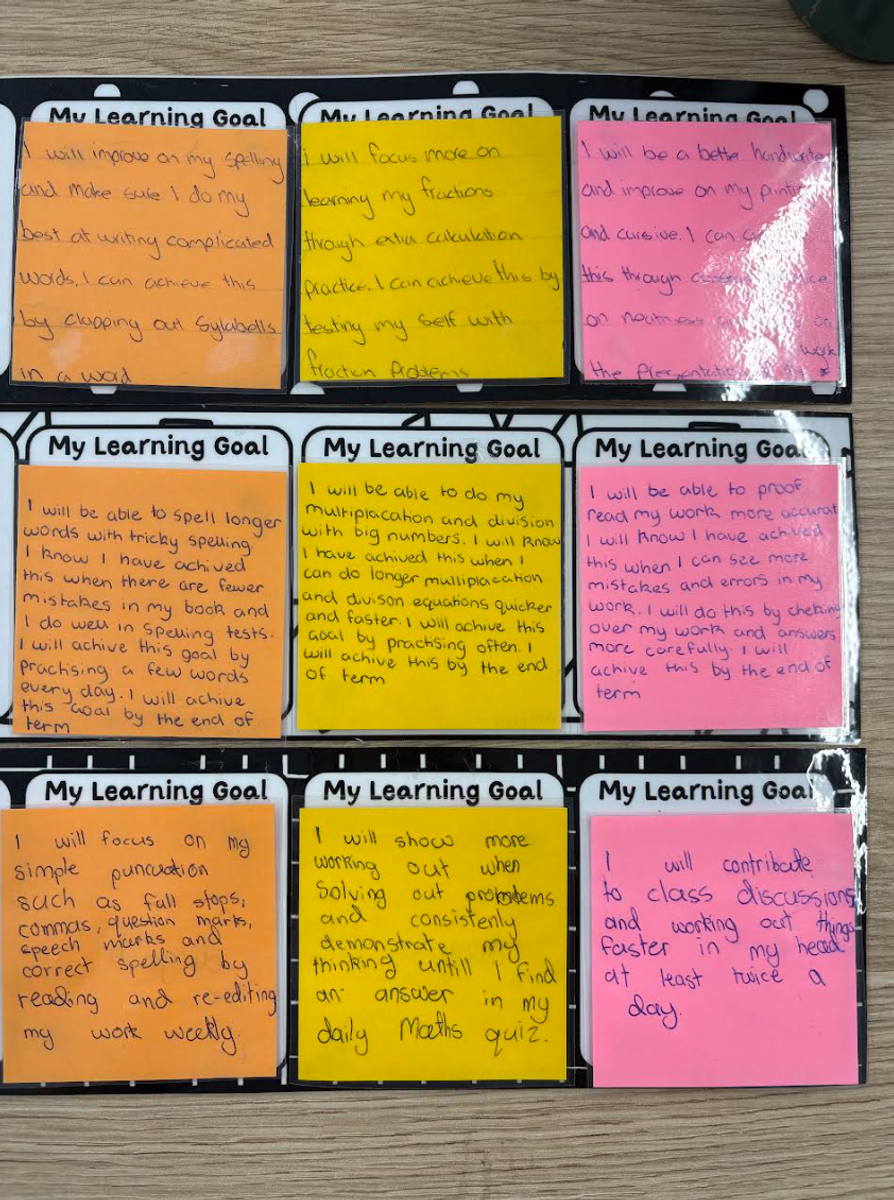Assistant Principal's
News
Ms Fiona Scullion
Assistant Principal

Assistant Principal's
News
Ms Fiona Scullion
Assistant Principal
All students from Kindergarten to Year 6 will be creating personal learning goals for the term. These goals will be a way to reflect on areas the students would like to improve or challenges they want to set for themselves.
It is valuable practice for primary school students to create learning goals, reflect on them, and involve their parents in that reflection process as it lays a vital foundation for lifelong learning, self-management which will impact academic success. It shifts the student from a passive receiver of instruction to an active, motivated participant in their own education.


Setting and reflecting on goals develops several key skills and mindsets in young
students:
A copy of your child’s goals will be stuck into their homework books this week. We ask that you read the goals with your child and offer a reflection for each goal. This could be an encouragement or a way you will help support them achieving their goals at home.
When parents are aware of a child's specific learning goals and the reflection process, they can provide consistent support and reinforcement at home. Parents gain a better understanding of how their child learns and what they are learning, enabling them to be effective partners in their child's education, such as by discussing learning strategies or aspirations.
At the end of the term, the students will be reflecting on whether their goals have been achieved and the impact on their learning and achievement in each area. Parents will have another opportunity to provide feedback on their reflections.
Thank you for your constant encouragement and support of our students, your children, as we empower every child with the skills they need to grow and thrive.